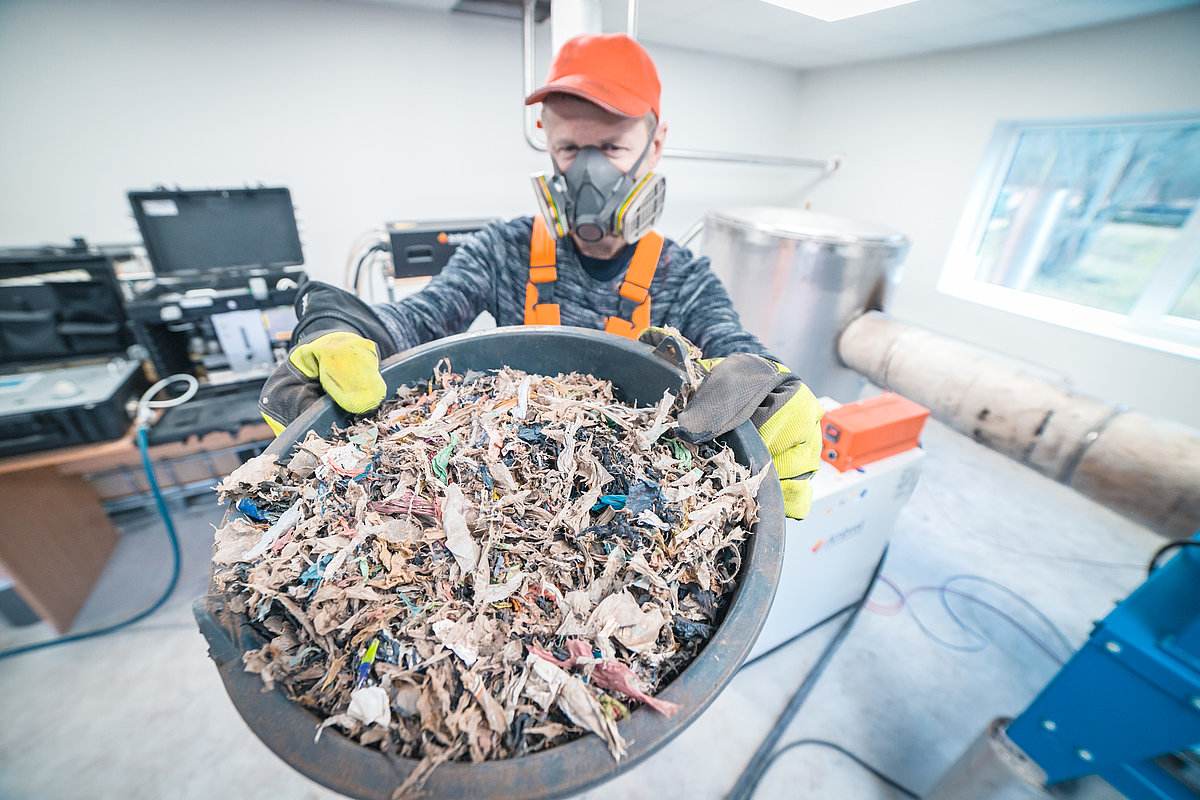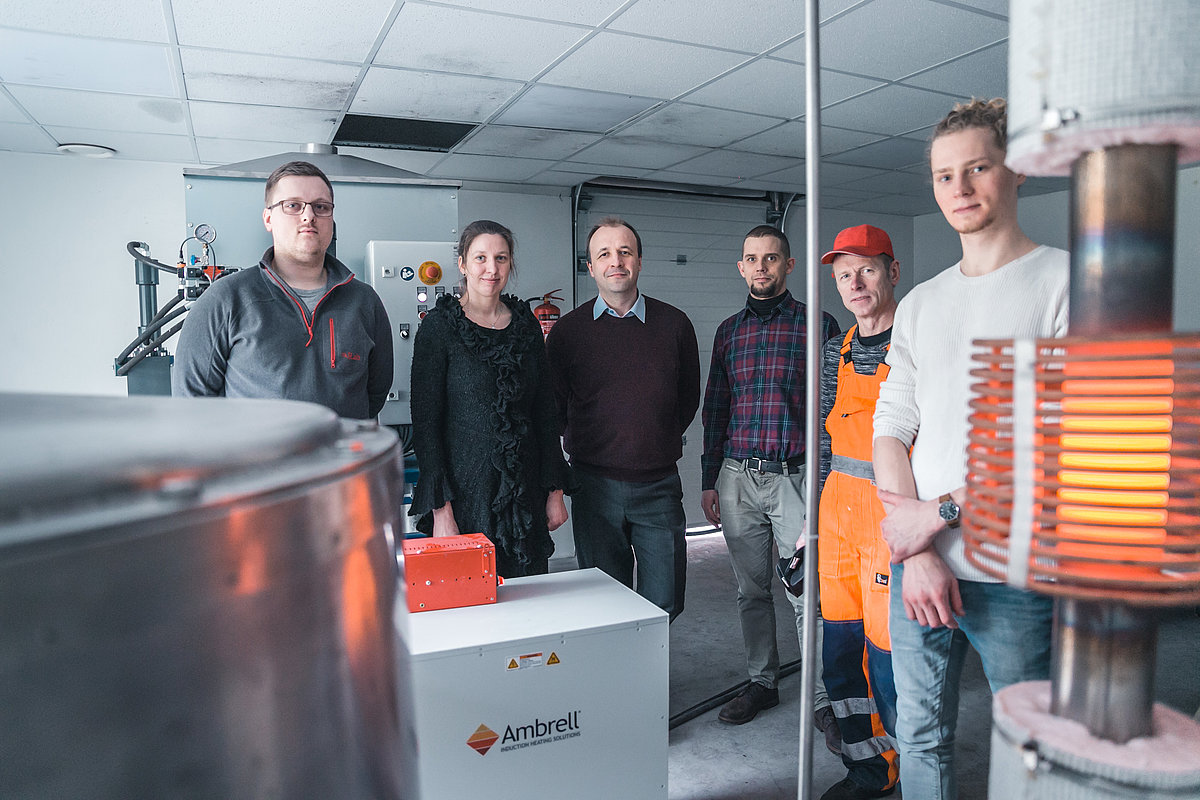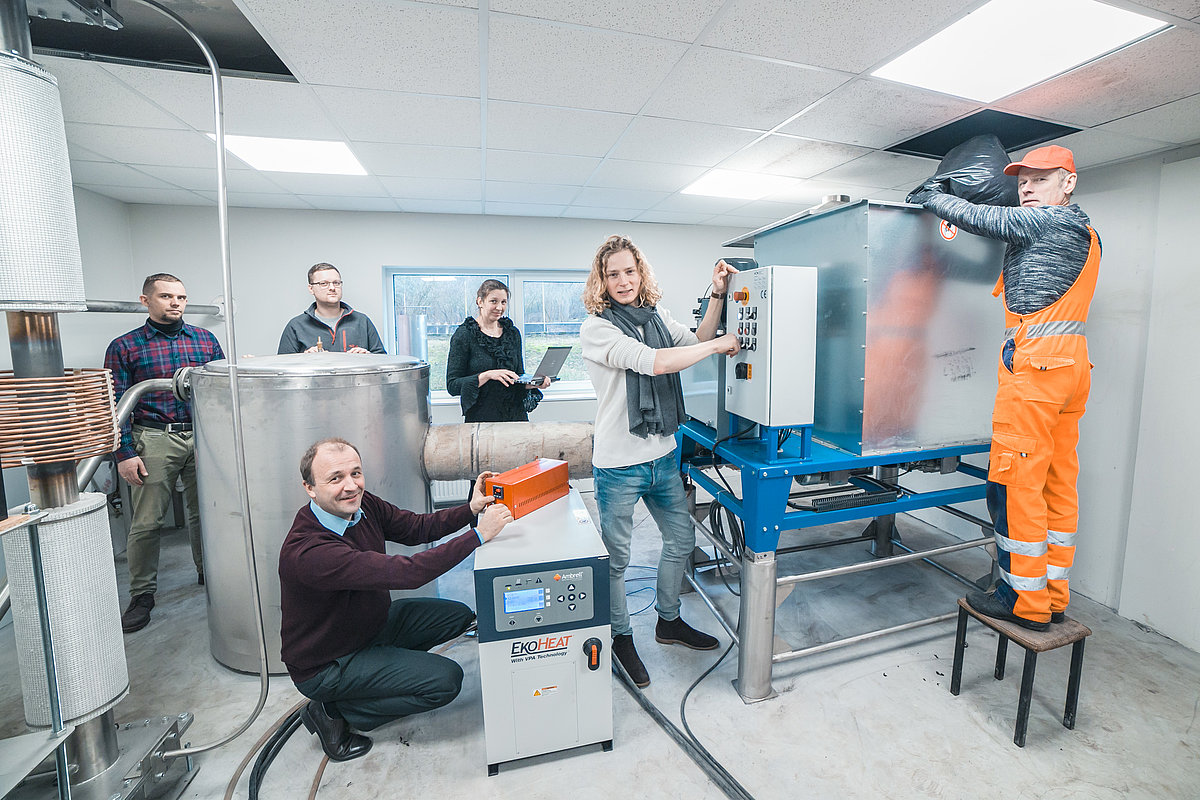
The research project “Variable fuel gasification for municipal solid waste recovery” implemented by the University of Latvia is approaching successful conclusion. It has been one of the most significant research projects of the University of Latvia in the field of waste recycling in recent years, where research efforts are invested in an urgent matter – sustainable waste recycling, aiming to achieve innovative recovery of energy and materials from waste.
Project research has been carried out by scientists, doctoral students, researchers and students of the University of Latvia Department of Environmental Science. The project has created an experimental facility capable of heating various types of fuel recovered from the waste – a mixture of plastic, wood, paper and various biomass – at high temperatures, following changes occurring in the heating process, analyzing the materials and gases produced in these processes, and obtaining synthesis gas – a blend of reusable gases useful both as a fuel and as a feedstock for the chemical industry. The end products of the waste gasification process have been analysed in laboratories to explore their potential for further use and to determine their prospective environmental impact.
The scientific director of the project Māris Kļaviņš concludes that one of the most important messages of the project is viewing waste as a resource: a material that, beyond recycling, can produce high-quality raw materials for energy or chemical industry. In the future, advancement of the concept implemented in the current project could contribute to full recycling of municipal waste and significantly reduce landfill. In addition, this approach is fully in line with the European Union's action plans to move towards a circular economy, as well as with Latvia's efforts to promote local energy independence.
The project has enabled investigation of options for thermochemical recycling of waste, assessing the suitability of Latvian waste for use in such processes. A prototype facility has been developed that will allow UL scientists to physically research and develop this innovative approach to waste management. The project has produced 6 scientific publications included in prestigious databases, as well as reports from more than 14 conferences and a patent application for the innovative gasification solution used in the project. An article written on the basis of project review and dedicated to thermochemical recycling of waste has been submitted to one of the world's leading environmental science journals “Renewable and Sustainable Energy Reviews”.
The project is funded by the University of Latvia, the European Regional Development Fund and the Latvian state budget. The total duration of the project is 3 years. The results and conclusions obtained are sufficiently conclusive for advancement of research in this direction, provided funding is available to realize these intentions.

 Akadēmiskais centrs
Akadēmiskais centrs
